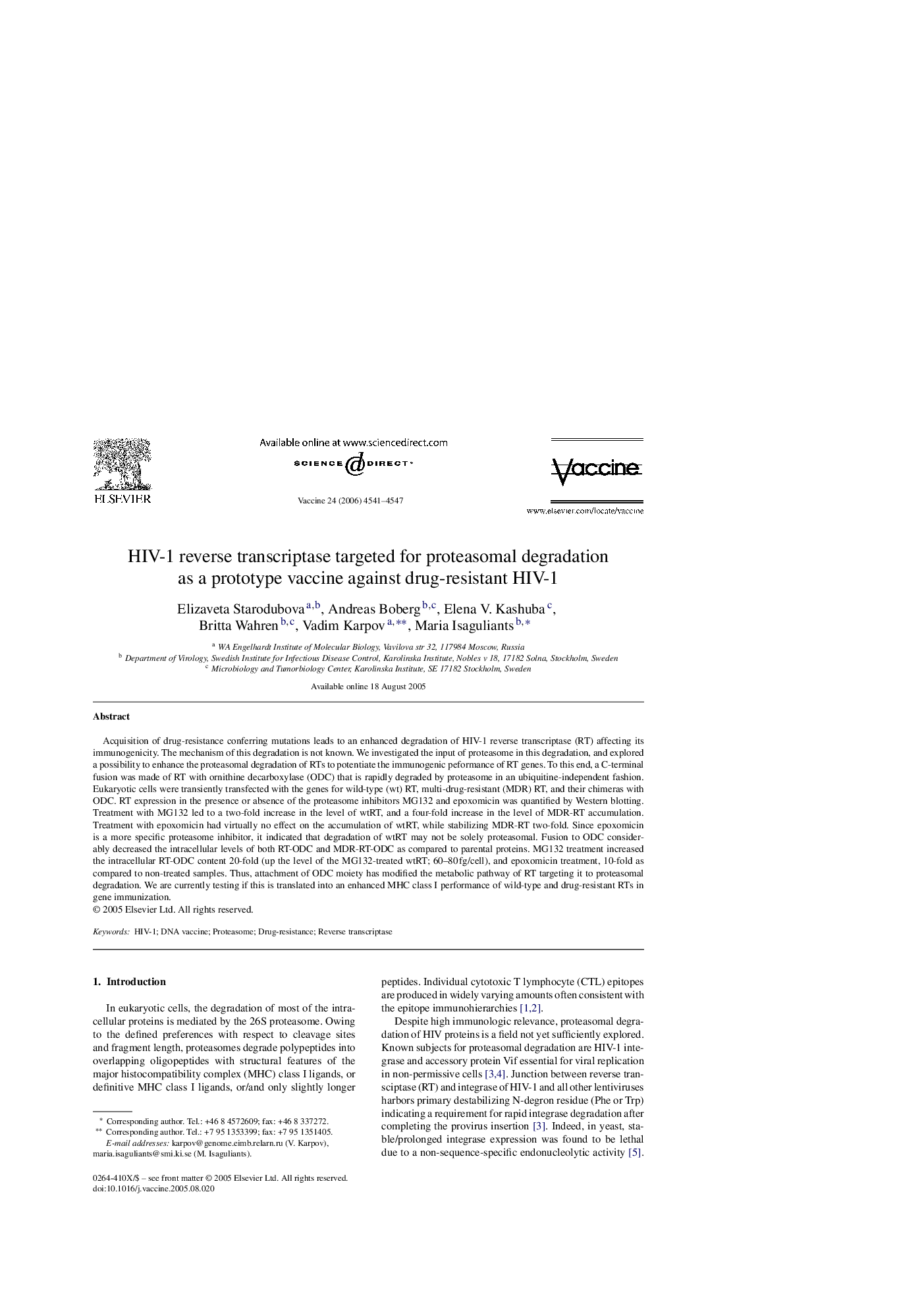| Article ID | Journal | Published Year | Pages | File Type |
|---|---|---|---|---|
| 2409400 | Vaccine | 2006 | 7 Pages |
Acquisition of drug-resistance conferring mutations leads to an enhanced degradation of HIV-1 reverse transcriptase (RT) affecting its immunogenicity. The mechanism of this degradation is not known. We investigated the input of proteasome in this degradation, and explored a possibility to enhance the proteasomal degradation of RTs to potentiate the immunogenic peformance of RT genes. To this end, a C-terminal fusion was made of RT with ornithine decarboxylase (ODC) that is rapidly degraded by proteasome in an ubiquitine-independent fashion. Eukaryotic cells were transiently transfected with the genes for wild-type (wt) RT, multi-drug-resistant (MDR) RT, and their chimeras with ODC. RT expression in the presence or absence of the proteasome inhibitors MG132 and epoxomicin was quantified by Western blotting. Treatment with MG132 led to a two-fold increase in the level of wtRT, and a four-fold increase in the level of MDR-RT accumulation. Treatment with epoxomicin had virtually no effect on the accumulation of wtRT, while stabilizing MDR-RT two-fold. Since epoxomicin is a more specific proteasome inhibitor, it indicated that degradation of wtRT may not be solely proteasomal. Fusion to ODC considerably decreased the intracellular levels of both RT-ODC and MDR-RT-ODC as compared to parental proteins. MG132 treatment increased the intracellular RT-ODC content 20-fold (up the level of the MG132-treated wtRT; 60–80 fg/cell), and epoxomicin treatment, 10-fold as compared to non-treated samples. Thus, attachment of ODC moiety has modified the metabolic pathway of RT targeting it to proteasomal degradation. We are currently testing if this is translated into an enhanced MHC class I performance of wild-type and drug-resistant RTs in gene immunization.
